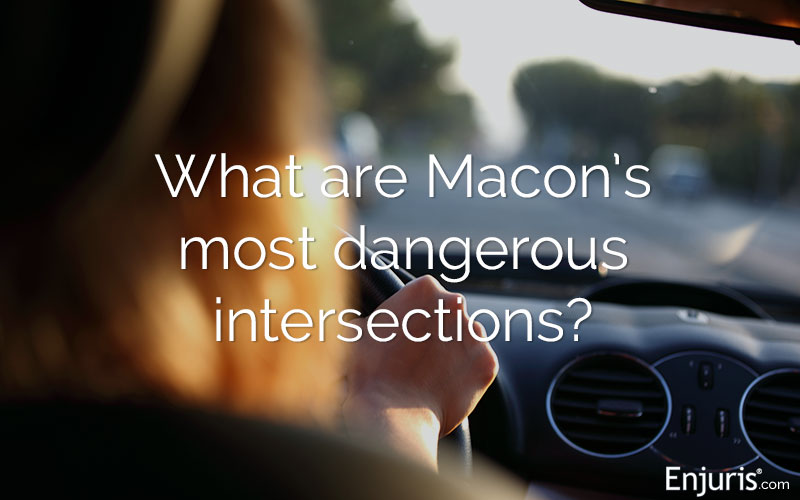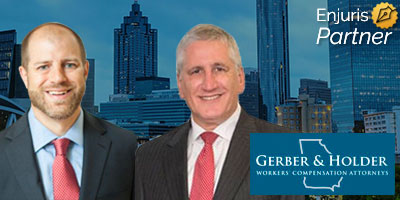Learn how to recover damages for your slip and fall claim
A slip and fall case is one of the quintessential personal injury lawsuits. Unfortunately, popular culture pokes fun at these claims, and these lawsuits contribute to personal injury attorneys getting the negative nickname of “ambulance chasers.”
In truth, a fall can cause significant injuries and even death. Furthermore, a fall is often a preventable accident that store owners and other businesses can avoid. If you were injured by a fall, we encourage you to schedule a consultation with a personal injury attorney to learn the strength of your claim and potential for damages.
Establishing liability in slip and fall cases
Slip and fall cases follow premises liability laws. In these lawsuits, the owner or manager of a premises is considered negligent for creating an unsafe environment for patrons, clients, customers, etc. If the judge or jury finds the defendant negligent, then the fall victim can recover damages.
In Georgia, four elements of negligence must be demonstrated in order for the plaintiff to win their case. These elements are:
1. Duty
“Duty” refers to a relationship between the plaintiff and the defendant. Any business that’s open to the public or any property manager who invited guests to visit their home or place of work satisfies this criteria easily.
The tricky element in slip and fall cases is whether or not someone was trespassing. For example, if a door-to-door salesman trips on his way up a front porch, he was technically an uninvited guest. The home owners may try to argue that they don’t owe a duty to anyone who wasn’t asked to come to their house. Trespassing children also get special protection in many cases.
If there’s any question as to whether or not your were what the law considers an “invitee” to the place where you fell, you need to contact a personal injury lawyer. The attorney will be able to explain your guest status and whether or not you were owed a duty by the property owner.
2. Breach of duty
“Breach of duty” refers to a wrongdoing committed by the defendant. In most slip and fall cases, the business owner or manager either failed to create a safe environment for customers or didn’t properly warn of a hazard. For example, a broken escalator may take a few days to fix. Prior to its maintenance, however, there should be plenty of warnings that the escalator shouldn’t be used.
It’s important to note that business owners need to have “reasonable notice” of a hazardous condition. In other words, if an item suddenly fell in your path there may not have been time for the property manager to prevent your fall. Similarly, if somebody committed a criminal act to cause you to fall, the manager may escape liability for your accident.
As slip and fall cases rely heavily on evidence that shows what caused your fall, it’s best to let a Georgia personal injury attorney manage your case.
3. Causation
Causation is a simple element to understand but is often the hardest to prove to a judge or jury. For this criteria to be satisfied, you must show that your fall was caused by something hazardous in the business, home, park, etc.
Common causes of slip and fall accidents include:
- Objects that fell or weren’t stored properly
- Parking lots or other areas that were poorly lit
- Broken or rundown staircases
- Unmarked floors that are wet or excessively dirty
- Broken elevators or escalators
- Ice and snow that hasn’t been removed
- Unprotected construction areas
- Broken or uneven sidewalk, flooring or pavement
Countless other hazards can cause slip and fall accidents. As long as whatever caused your fall didn’t appear suddenly, proper documentation and evidence presented by your attorney should help you demonstrate this criteria.
4. Injury
Injury is perhaps the easiest element to prove for slip and fall negligence claims. Negligence claims typically involve accident survivors or families who are filing on behalf of a deceased loved one. You can’t file a lawsuit if you didn’t suffer an injury or have financial consequences, so a false claim is unlikely in a slip and fall.
If your attorney successfully persuades a judge or jury that all 4 elements of negligence were met in your lawsuit, then you will be able to recover damages.
Fault in slip and fall cases
Georgia is a modified comparative fault state. This means that as long as a plaintiff was less than 50% to blame for the accident, then the accident victim can recover damages.
In slip and fall cases, there’s often debate as to whether the hazard that caused the fall was “open and obvious.” In other words, would any other person have spotted what caused the fall and done anything to prevent the accident?
There may have been a distraction that prevented you from watching where you were going. Perhaps your child was running off or you were looking at your cell phone. Don’t assume, however, that you know how much you were at fault. Consult with a personal injury attorney before you sign any form of insurance paperwork. Signing too early could be an admission of fault, and you may lose your opportunity for any form of settlement.
What to do after a slip and fall accident
There’s no denying that a slip and fall accident often boils down to a he said/she said argument. There’s less documentation than something like a car accident, so it’s up to the accident victim and their loved one to preserve as much evidence as possible.
Important steps to take after a slip and fall are:
- Seek proper medical attention. If you hit your head when you fell, if you’re bleeding heavily or if a bone may be broken, call out for help and ask for an ambulance to be called.
- Ask witnesses. You or a loved one should speak to all possible witnesses and record their contact information. The witnesses may be needed to provide depositions or testify.
- Take photographs. Either you or a loved one needs to take pictures of whatever caused your fall. Take pictures of the surrounding area too, in case the business’s layout contributed to your accident.
- Report your accident to management or the business owner. They may ask you to complete an accident report. Keep track of everyone you speak to and try to get a copy of whatever documents you sign. Be sure to read everything carefully as you have to to avoid signing any liability waivers or anything that minimizes your injury.
- Meet with your doctor. If an ambulance wasn’t called, you should still make an appointment with your primary care physician to document your injuries and make sure you don’t have a more serious injury, like a concussion.
Potential compensation for a slip and fall accident
If you were injured in a business or store, it’s likely that a representative from the business owner’s insurance company will call you to offer you a settlement. If your injuries were minor and the offer seems fair, it’s perfectly fine to accept the amount offered to you.
If, however, the amount doesn’t match your medical bills and time off, it’s likely that you’ll need to file a slip and fall lawsuit. Damages for slip and fall cases in Georgia include:
- Medical bills and expenses
- Lost income for time off from work
- The fair value of any clothing or property damaged in the incident, such as a phone
- Pain and suffering compensation
- Punitive damages if any foul play or gross negligence occurred
A personal injury attorney will explain to you how damages are calculated and will help you decide if you should settle or not. The consultation is typically free and we encourage you to use our directory of Georgia personal injury attorneys to find a legal professional near you.
Did you know that premises liability law varies by state?
What does an injury lawyer do?
A personal injury lawyer helps individuals who have sustained injuries in accidents to recover financial compensation. These funds are often needed to pay for medical treatment, make up for lost wages and provide compensation for injuries suffered. Sometimes a case that seems simple at first may become more complicated. In these cases, consider hiring an experienced personal injury lawyer. Read more
There are several dangerous intersections in Macon and some unsettling local data about traffic accident fatalities in recent years. Learn about the statistics, laws and how to find an injury lawyer.
More on Macon car accident statistics & what to do after a crash















